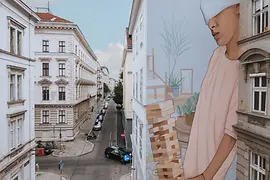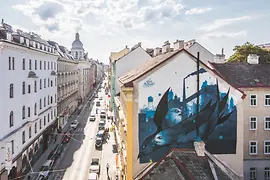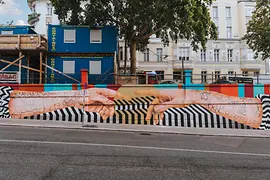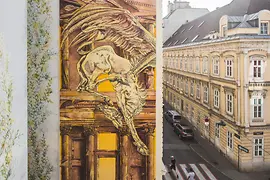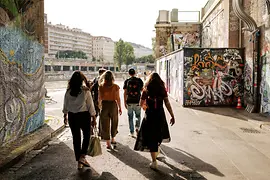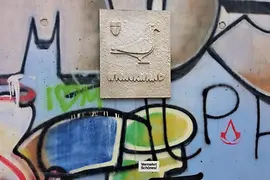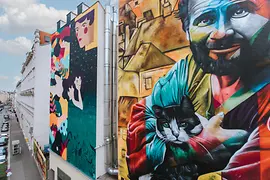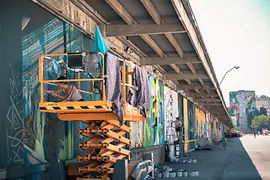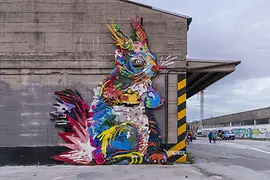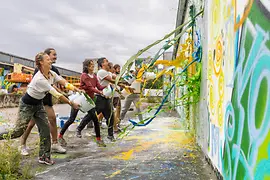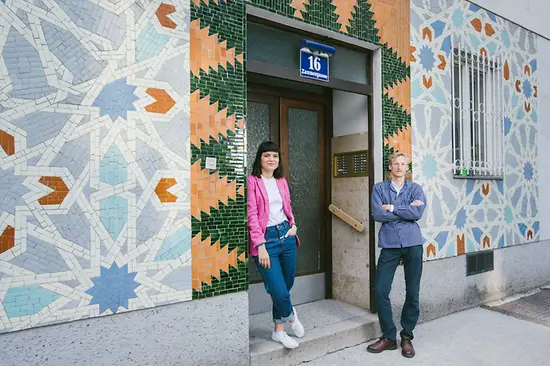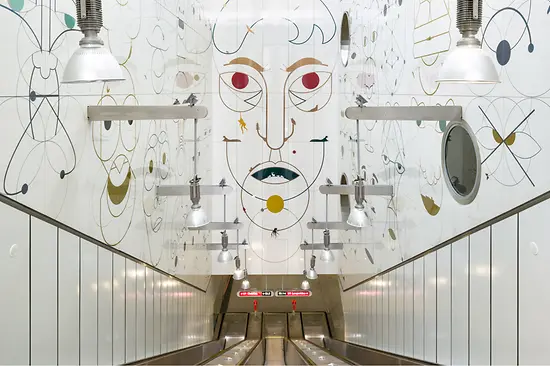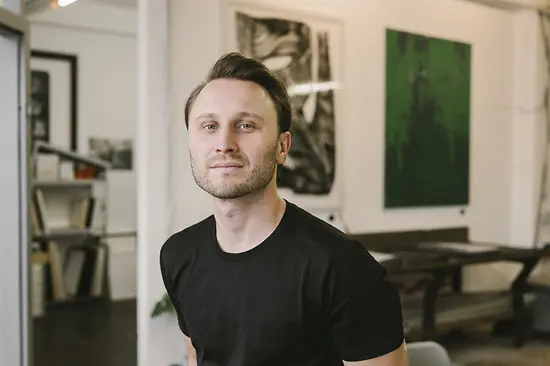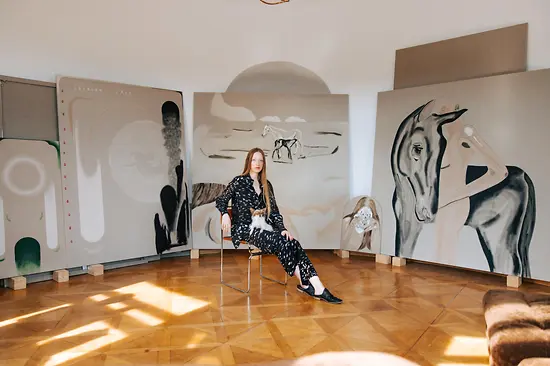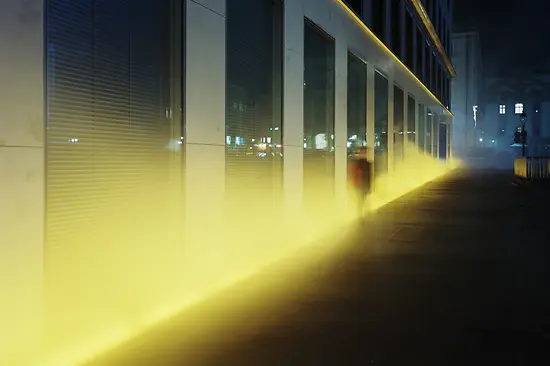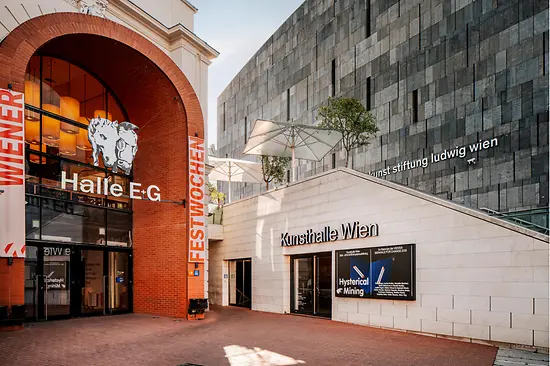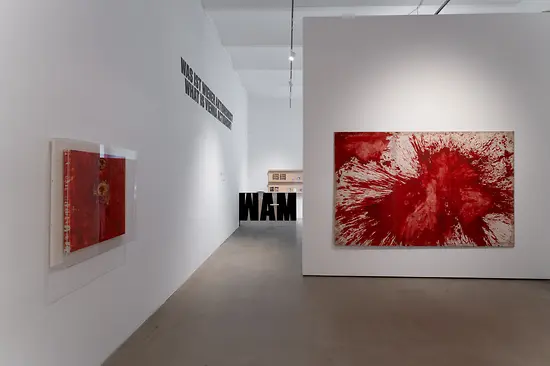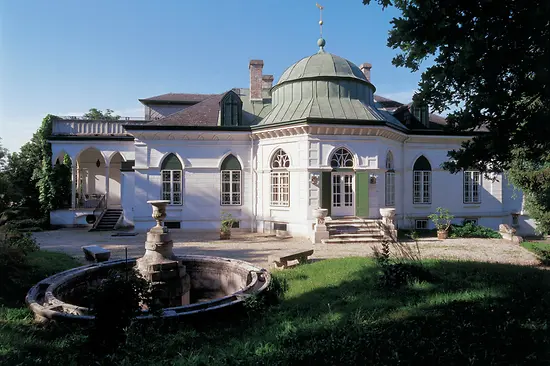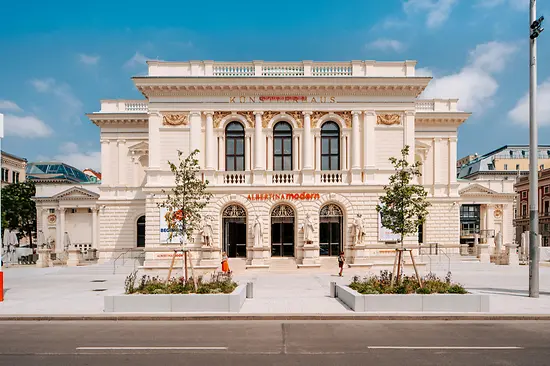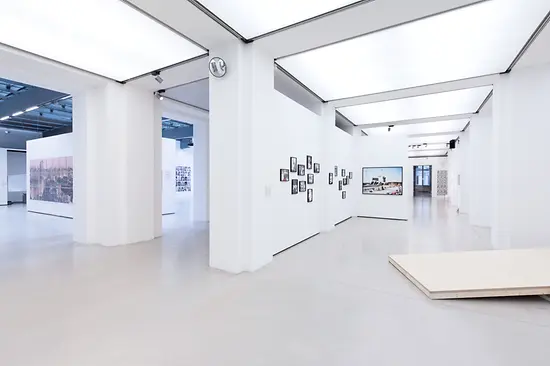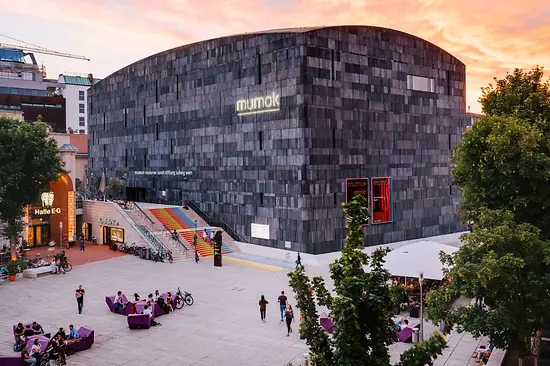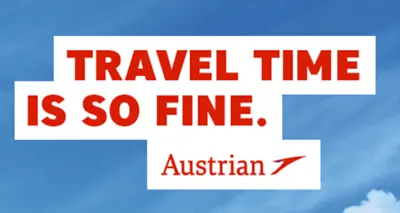Street Art in Vienna: Color Burst
Examples of urban art can be found everywhere in the capital. Out walking or peering out of the window of a bus, tram or subway – all kinds of outdoor artworks reveal themselves beneath the Viennese sky. Often highly imaginative, and usually colorfully designed, a number of the city’s walls, facades and building entrances – as well as the odd subway station – are works of art in their own right. Numerous initiatives have helped outdoor art to flourish in Vienna.
Since its foundation back in 2004, KÖR Wien – an institution dedicated to the promotion of art in public spaces – has initiated and supported close to 300 temporary and permanent artistic projects, including a great deal of street art. Making contemporary art accessible for everyone and encouraging public discourse in the process.
And then there’s the Vienna Wall project: backed by the city, selected walls throughout Vienna have been made available for anyone to use artistically since 2005 – participating locations are clearly marked with Wiener Taube plaques featuring a pigeon symbol. The Danube Canal is undoubtedly the epicenter of street art in the city. Running through the city center, this offshoot of the River Danube is a veritable outdoor exhibition space. Here, the walls, railings and archways are covered with layer upon layer of spray paint. It is also where one of Europe's largest open-air galleries, known in the scene as the Hall of Fame, was created in recent years.
Vienna’s Magnetic Draw
The capital has also had its own festival for street art since 2014, Calle Libre, which is now the largest in Central Europe. "When we started, art in public spaces was still dismissed as graffiti by many, and was considered art’s poor relation," says Jakob Kattner, who launched Calle Libre (Spanish for free street) after a study trip around Latin America. Taking place every summer, this festival for urban aesthetics combines visual and performing arts with new media.
More than 70 walls, some of them several meters high, in 13 districts have so far been covered by local and international street artists. After all, the city enjoys an excellent reputation worldwide. Kattner: “Vienna is a mecca for art. And of course, that attracts a lot of artists." Some find very special inspiration here, including international stars Kobra and Kruella d'Enfer, both of whom made their mark in the fourth district with their murals. Influenced by Viennese greats Gustav Klimt and Egon Schiele, their 2018 works are still in place.
Craving Color
Kattner's vision? To make Vienna more colorful. This also goes down well with the Viennese. “Residents’ acceptance of street art has steadily increased over the years," says the festival’s founder. “We want to help shape the look of the city, and pave the way for discourse and cross-cultural exchange. In recent years, we have been able to show that urban art is a contemporary art movement that should be taken seriously. And of course, we’re pleased with the positive feedback we receive." Street art has long distanced itself from associations with vandalism. Cultural institutions are also increasingly forging collaborations of their own, as evidenced by various joint initiatives including partnerships between Calle Libre and the mumok, the Albertina, the Wien Museum and the Weltmuseum Wien.
Learn more about street art in Vienna
Display alternative text
Video about the Graffiti scene in Vienna
Text: Maria Schaller

